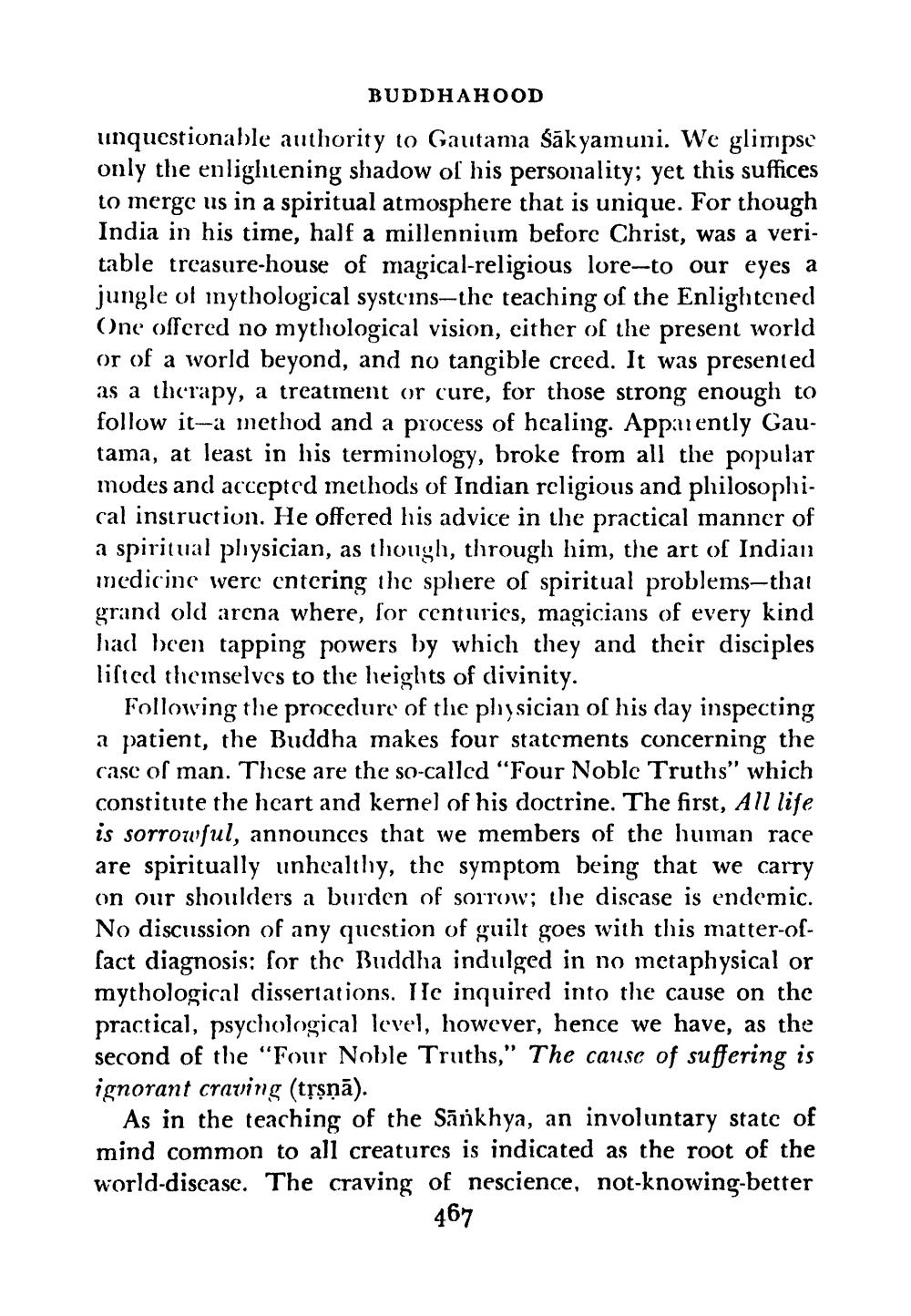________________
BUDDHAHOOD unquestionable authority to Gautama sākyamuni. We glimpse only the enlightening shadow of his personality; yet this suffices to merge us in a spiritual atmosphere that is unique. For though India in his time, half a millennium before Christ, was a veritable treasure-house of magical-religious lore-to our eyes a jungle of mythological systeins--the teaching of the Enlightened One offered no mythological vision, cither of the present world or of a world beyond, and no tangible creed. It was presented as a therapy, a treatment or cure, for those strong enough to follow it-a method and a process of healing. Apparently Gautama, at least in his terminology, broke from all the popular modes and accepted methods of Indian religious and philosophical instruction. He offered his advice in the practical manner of a spiritual physician, as though, through him, the art of Indian medicine were entering the spliere of spiritual problems-thai grand old arena where, for centuries, magicians of every kind had been tapping powers by which they and their disciples listed themselves to the heights of divinity.
Following the procedure of the physician of his day inspecting a patient, the Buddha makes four statements concerning the case of man. These are the so-called "Four Noble Truths" which constitute the hcart and kernel of his doctrine. The first, All life is sorrowful, announces that we members of the human race are spiritually unhealthy, the symptom being that we carry on our shoulders a burden of sorrow; the disease is endemic. No discussion of any question of guilt goes with this matter-offact diagnosis; for the Buddha indulged in no metaphysical or mythological dissertations. He inquired into the cause on the practical, psychological level, however, hence we have, as the second of the "Four Noble Truths,” The cause of suffering is ignorant craving (trsņā).
As in the teaching of the Sārkhya, an involuntary state of mind common to all creatures is indicated as the root of the world-disease. The craving of nescience, not-knowing-better
467




